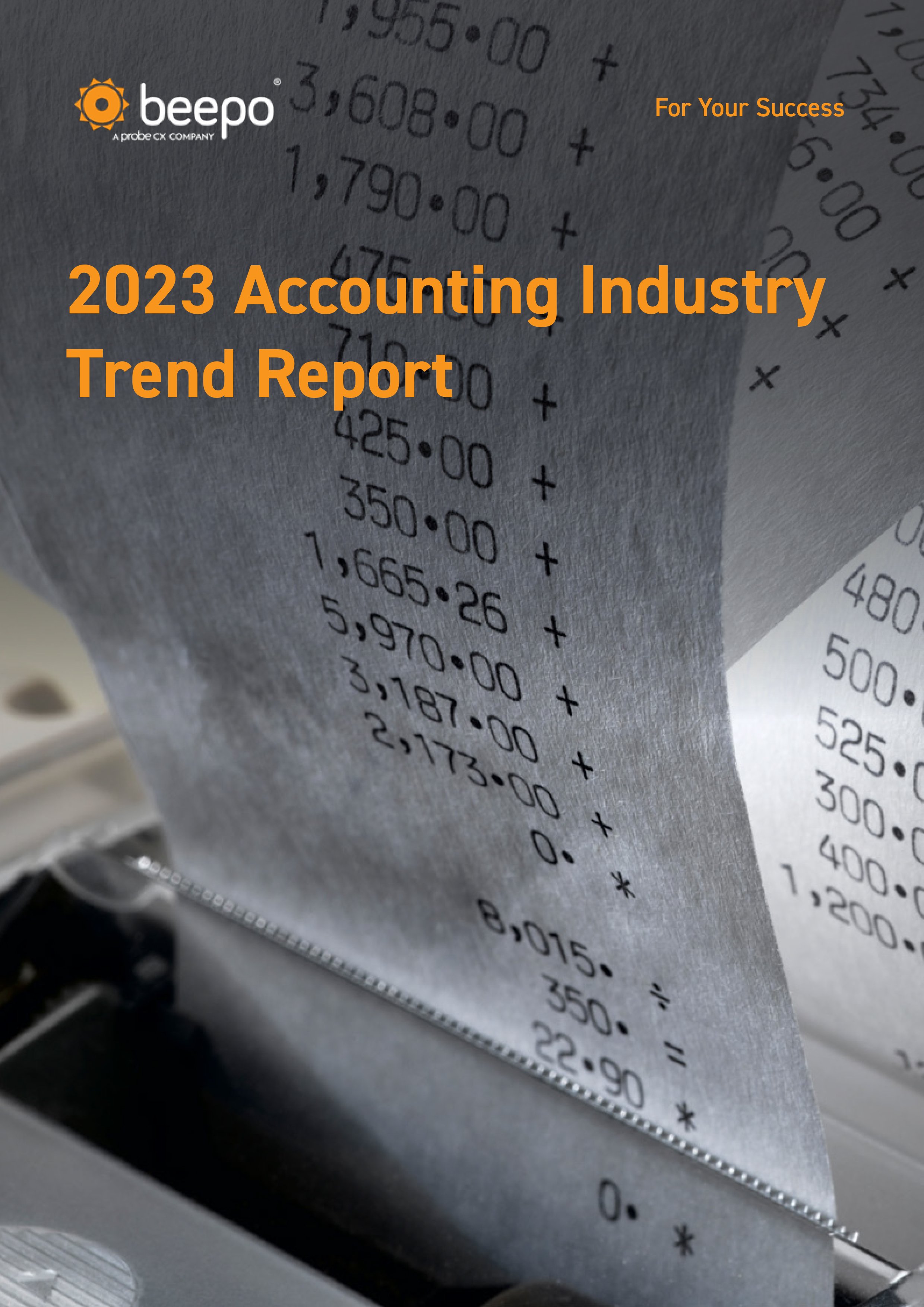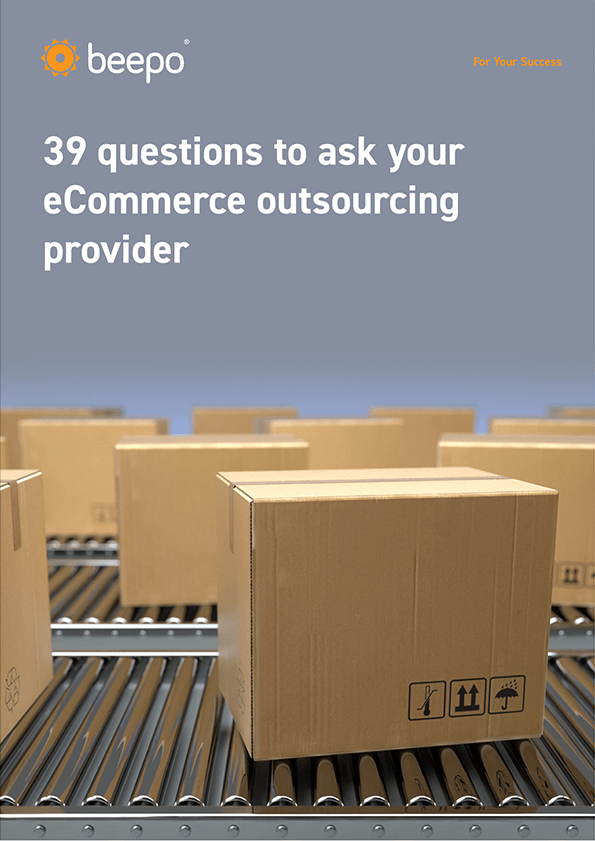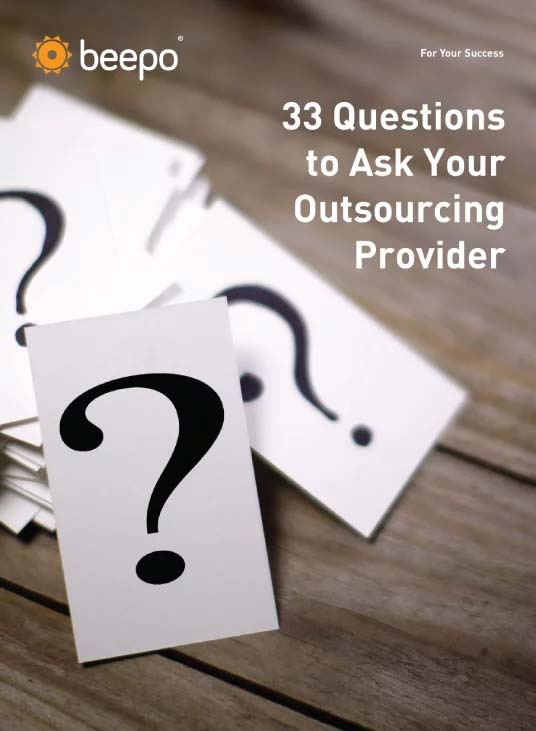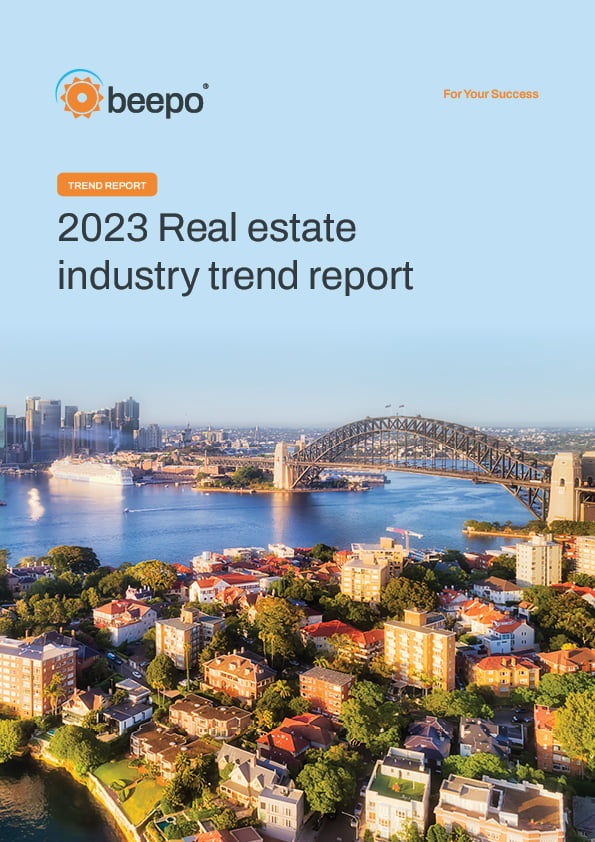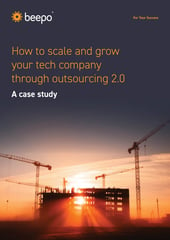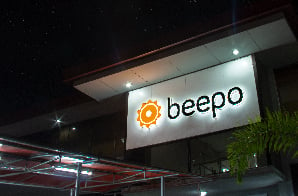Matt Punter was a director at Mortgage Works and Conveyancing Works. Listen to his story about building and selling to ASX-listed Slater and Gordon. Matt has now gone back to his roots and is building award winning brokering firm, The Savings Centre. If you need an exit strategy for your business, then this is a must watch!

Interview Transcript
Mark Engelmann: Welcome everyone to this episode of the Go for Growth Show, my name's Mark Engelmann and I'm very happy to have Matt Punter, the managing director of The Savings Centre with us today. Welcome, Matt.
Matt Punter: Thank you. Good to be on the show.
Mark Engelmann: Matt, let's get straight into it. Can you tell me a little bit about what you guys do at Savings Centre?
Matt Punter: We're retail mortgage brokers. We're a little bit different that we focus on investors. So we deal with a lot of people that are just getting into investing, maybe doing some property developments, some subdivisions. So we've kind of targeted that niche. It was a little bit unexpected, it almost dropped in our lap, the opportunity, but we found it an interesting sector. These people are very active in what they're doing, and they're moving ahead, so they're doing multiple deals. We set up a nice little niche based out of Caloundra on the Sunshine Coast in Queensland, but we've got clients all over Australia, so we're enjoying the ability to be able to transact right throughout ... Well, we've even got international clients in Hong Kong and Singapore. So yeah, it's nicely based on the Sunshine Coast.
Mark Engelmann: Yeah, great, great. No, look, we're, as you know, based down in Northern New South Wales on the beach, so yeah. I totally get it. But Matt, what a lot of people may not know, but they may have heard of some of the brands that you've been involved in in the past, is that you're involved in Mortgage Works and Conveyancing Works, and from what I understand it sounds like a pretty interesting journey that you've been through up till this point. Can you talk us through that journey and how Mortgage Works came about and what happened with the transition to Conveyancing Works?
Matt Punter: Yeah. So I was a ... Out of school I went into banking, I joined a regional bank, Bank of Queensland, which is now BOQ. I earned my stripes there, I became a branch manager, I was about 24, and just got some exposure to some pretty senior people. I was lucky enough to work alongside the CEO at the time, and I was pretty much the run around lackey boy before I got my chance to run an office. So that led to one of my general managers, I guess, in the bank heading up Conveyancing Works. I'd left the bank, was living in Japan at the time, just having a bit of time travelling and being a young person.
I was finishing some study that I was doing and when we decided to move back to Australia, Conveyancing Works was established. Was only very ... Was probably nine months old at that stage, back in 2001. And Don Horsfall, who set it up, he invited me in to set up a mortgage business. So I'd taught him about setting up a mortgage business previously, and he said, "Well, why don't you do it here? We've got an emerging lead source." So we partnered on it, and I basically wrote a lot of deals and ran the frontend of Conveyancing Works. Gave all the quoting and basically that grew into a team of people.
Then we had ... I think at the end there we had about 12 brokers servicing all the different locations. We had 12 offices in the end and basically 12 brokers sign off a broker per office, and we wrote a fair bit of lending off the back of the lead generation source, which was the conveyancing business.
Mark Engelmann: Yeah, cool. What a lot of people may or may not know is that Conveyancing Works was eventually acquired by Slater and Gordon. Was that the intent when you went into partnership, was to build this business with an exit strategy in mind?
Matt Punter: Probably ... Yes and no. The premise of Conveyancing Works was actually to build a really big mortgage business, because we were all bankers, apart from we had to find a lawyer to legitimise things. We basically set it up to try and write a lot of mortgages. What we worked out, around about 2004, 2005, there was ... We were getting a little bit of pressure from the Queensland Law Society about being brokers and being conveyances. It was all a little bit ahead of its time, I guess.
We decided to focus on conveyancing at that point. We then decided to grow a really big conveyancing business, and we sold off the mortgage book. I think that ended up probably near 2005, and just set about growing as many offices as we could and just getting our reach out there. I guess there was always the utopian view, yeah, look it'd be nice if we could sell it. So we did develop a brand and we really nurtured that brand ... We fostered it and tried to grow it so it was sustainable, it was a clean brand.
We did a lot of transactions, we peaked at about 2000 settlements per month, in the heady days of ... Maybe that was 2007 or something like that, one of the boons, but we consistently did about 1500 transactions, settled each month. So we knew we had something to sell, there was a lot of ability to leverage off that. We probably didn't really optimise that, but looking back at it in hindsight now, I look at the mortgage opportunities that would have ... Had we continued down that path and had both happening concurrently, that would have been an absolute magic source for leveraging all sorts of things.
It was probably the golden exit that we all wanted, but it wasn't the main ... The main focus of the business was just do what we did well, systemize it well. So we wrote our own systems, we basically built our own conveyancing platform. That was probably the best thing that we did, was build the platform with our own software, because they ... When Slater and Gordon was looking to acquire someone to get access to the platform, but also access to what we'd already created, which was a fairly big brand. So that worked really well for us, that aspect of it.
Mark Engelmann: Yeah, great. Could you tell me about what the process was like, that acquisition process with Slater and Gordon?
Matt Punter: It wasn't quick. We were pretty naïve, particularly me, I was the youngest of the business partners. So we reached a figure, we did some negotiations, I did the due diligence on us, we cancelled an agreement on figures based on numbers, and the prospects for growth, etc.
What really hampered us was the floods in ... I think the Brisbane floods came in 2011. It was right at the end of our negotiation, and it really stalled things. So maybe it was a bit before that. I'm a bit shady on the dates, but we ended up settling it back in late 2000 ... So it was November, 2011. But the floods came through and that really hurt our business. The number of transactions in the marketplace fell significantly, and we had to retrench a number of staff at that point, which was really unfortunate.
We were able to reemploy most of those when the volume came back into the market. But the acquisition process itself, look I went through a lot. It was an amazingly comprehensive process, and we'd always think it was done, the deal was done, and then something would happen, and I needed to go check this. So yeah. I learned a thing or two about acquisitions and how these things happen. It was an interesting process, for sure.
Mark Engelmann: You mentioned before that you and your partners put a lot of effort into building the systems and processes within your business and I guess documenting them and also building your own software platform to manage all of that. I bet that was quite an attractive part of the business, from an acquisition point of view?
Matt Punter: Yeah. I think it was. The play from Slater and Gordon was to be able to plug into it, and then we ... I worked for Slater and Gordon for the next two years. That was part of the deal that we struck. Moved to Melbourne and we worked, myself and the CEO, Lee Bailey, we worked really hard with a much bigger team. We had a senior management team that we ... And some really clever people that knew a lot more than I do about software and how these things all come together.
So we built it from all the different aspects. We had business development, a pretty unique business development platform that we developed, where we licensed ... Not conveyances, we didn't go after conveyances, we went for more entrepreneurial, relationship based people, that would be out there dealing with real estate agents predominantly. We had ... That pretty much doubled our market share. So we had not just the platform itself, but we had some proprietary systems and processes in place that were pretty innovative.
We looked at it as a ... We overlaid a banking platform over a law firm, and just trying to bring it down to a commodity. So what we believed, and what I still believe, is that conveyancing is just a commodity. People don't really ... They don't have a conveyancer, as such. Very few people have a conveyancer. They want it done properly, and as cheaply as possible, at a fixed price. We were the first ones into the market at that point to put that message out there. So we felt we had to put some proprietary systems over it. Look, not everything we did worked as we'd hoped it would, but enough things worked in our favour that we were able to build a reasonable sized business and learn a few things along the way.
Mark Engelmann: Yeah, great, great. So we've talked about systemizing a business. Do you have any other, from your experience, any other tips about if anyone of our listeners is looking to sell their business or get their business, bash it into shape, so to speak, for a sale, have you got any ideas around how they could do that?
Matt Punter: Yeah. I guess, you got to build something that's clean. So a lot of the due diligence that was done on us was around our brand. In the legal business there's a lot of opportunity to get sued. So we had a really clean claims history. So we were able to document that. Everything we did was all underpinned by sustainability. We built a brand that if we had issues, we sorted them out quickly. In the legal, doing as many files as we would handle, it can be a messy process as well, so lots of parties involved. The real estates, the brokers, the banks, and then there's sides to that as well.
Some tips that I would suggest would be build a clean brand, make sure you don't have any skeletons in the closet. If you do, drag them out, clean them out, just deal with it, because they'll find them. Particularly, depending on who it is, we were researched by an ASX-listed legal firm, so they did their homework. What other things did we do? So we ... The system was ours, what we didn't do is we didn't go and buy something off the shelf and then try to customise it. We said, "Right, this is what we want it to do," and we paid for people to write it for us.
I think that was probably one of the best things that we did, was have our own system that wasn't customizable. No one could replicate what we had because it was just built from the ground up. It cost us a fair bit of money to do that, but it was ... I think it played a large role I the sum or the multiple that we were able to generate based on our numbers.
Mark Engelmann: Yeah, okay, that's all really great advice. So back to the present. Not long after that journey, you've gone back to your roots and started Savings Centre. You spoke a little bit about that earlier. I guess what I'm interested in is now that you've had all of that experience and you're really experienced in that finance market, how did you come up with Savings Centre and how have you positioned it in the market to be a little bit different from all of the other players?
Matt Punter: Yeah, well we had, last time we had Mortgage Works and we had Conveyancing Works and we started to go a little bit more generic with the naming of this one. So mortgage broking I think is a great lead generation source for other things as well. So we're exploring relationships around insurances and just helping people ... It's pathway to wealth kind of thing, that we originally set the business up to head into that space. We found the investment niche and it seemed to fit us quite nicely, but I've got some proprietary and budgeting software and some mortgage reduction software that I've helped build with another mate of mine, who we did some business in a budgeting business down in Melbourne at the tail end of the Slater and Gordon thing.
So we're looking to grow it. We've got some plans to just help people move forward in life. I've done a little bit of life coaching as more of a hobby, I guess personal type stuff. I've found that a great conversation to start things off is when people are very comfortable talking about finance, they're not so comfortable talking about goals and where are you now and what do you need to do to get there? But if you wrap it around finance, then it's more palatable.
I guess we see The Savings Centre as a generic name that would help people to assimilate us with people that are going to help them to, whether they're in trouble with their finances and they need some debt consolidation type stuff, we do a lot of remediation type work as well, to help people maybe de-complicate their financial affairs. So coaching's kind of ancillary to what we do, but it certainly plays a role in how I approach interactions with clients, and as we're building a team of brokers, that do all of the loan writing behind the ... I'm trying to pass on those skills just to understand what the client really wants. I guess that's a generic approach that will allow us to cross-sell other services from a finance base, which is kind of nice place to be.
Mark Engelmann: Yeah, great, no. I really like that idea of combining that overall coaching approach to what you do. I know that from my personal experience I've always found it hard to find an advisor that gives you clear direction on what to do. If you go, "I'm going to retire when I'm 60, this is how much money I want in the bank, help me get there." I've always found it really hard to actually find someone who is willing to take the risk, I guess, in some respects, and help you get to that goal. So I think that's a really great twist on the finance broking.
Matt Punter: There's other people out there, there's other firms out there that are ... They're selling themselves as a pathway to wealth. I've found ... I've done some research on a few that I thought might have been a nice model to follow, and unfortunately a few of them just seemed to be dressed up project marketers, and there's a lot of commission in project marketing properties. That's part of our industry, I understand it, accept that, but I don't see that as a sustainable pathway to wealth because we've seen a lot of clients end up with properties in mining towns, and I grew up in a mining town so I have an intimate knowledge of these things, and I've seen a lot of people get burnt with ... It's very ... Their fortunes are mixed.
Sometimes you can ... I'm sure there's a lot of people out there that have done really well out of buying property in mining towns, if they sold at the right time, but as a buy and hold strategy, for yield even, I just, I haven't seen enough success with it to be comfortable with pushing people down that path. So I think there's other ways to do it. We're associated with different groups of investors that are really based around education mainly, as opposed to flogging properties, so teaching people how to fish rather than handing them a fish and saying, "Here's a nice one to buy." So I think there's better ways to do it.
Mark Engelmann: No, totally. We're almost getting to the end, this is the second last question. Do you have any growth tips for business owners looking to take their business to the next level?
Matt Punter: We spoke earlier, Mark, about networking and hanging out with the right style of people that are doing what you're doing. I'm a big fan of talking to people who help to keep the flame going. You've got to have the fuel in the tank and you've got to have a fire to be an entrepreneur and so something that's different, be self employed. There's a lot of challenges that go with being self employed. I think the biggest tip would be find some people that are flying at the same altitude or where you want to be. As we spoke about, there's different clubs out there and associations that you can join, but just people that you find in business I think. If you can find the right style of people that are trying to do, or are doing what you're doing or where you want to be, then assimilating and just strategizing and even just having a cup of tea or a beer or whatever it might be to pick each other's brains and help each other in an associative, cooperative kind of way. I like that style of thing myself.
Mark Engelmann: Yeah. That's great advice. Last question, is there anything you're using at the moment, any tools or services or applications or anything that you're using in your business that's making things easier for you?
Matt Punter: We've come across some software recently, it's helped us, workflow stuff. So I think what I learnt from the Conveyancing Works days was that if you systemize it and you don't need to be involved in every part of the transaction, then you're building a business that is sustainable. You just got to teach the right people and you got to give them a method. So I think anything that can help you to systemize it and give people that consistency of service delivery. There's a lot of software out there these days, there's a lot of services out there that can help you to do that, to take the time out of it, so you don't need to do it yourself.
Anything that gives you those sort of efficiencies, I think is definitely worth exploring. If it can reduce your costs, if it can just improve your return on time, I think it's definitely worth having a look at, and there's lots of solutions out there now.
Mark Engelmann: Yeah. There are lots of solutions. And every day there seems like there's more coming in the market. So there's no excuses for anyone not to implement something that will help them systemize and get their business to the next level.
Matt Punter: Yeah, it's test and measure.
Mark Engelmann: Yeah, test and measure. So that's great, Matt, thanks for coming on the show today. That's all my questions. Look forward to catching up soon.
Matt Punter: Thanks, Mark. Pleasure being on the show. Thank you.
Mark Engelmann: See you later.

